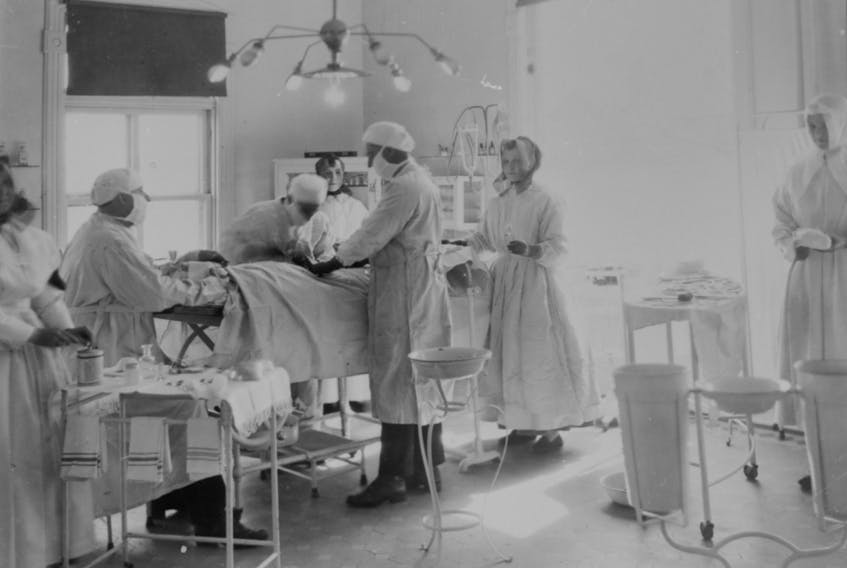Guardian coverage has mentioned two interrelated topics: past epidemics (April 8), and the strong leadership bringing us through the current time. Readers may also be interested in knowing that 400 Islanders died with the pandemic influenza of 1918 (aka the Spanish flu). As many Islanders died within months on peaceful P.E.I. as had died in four full years of the First World War – the bloodiest war the world had yet seen.
Perhaps a few names, first published by Boyde Beck, will put a face on those Islanders who died in the 1918 pandemic.
Nan Downey, a nurse at the Prince Edward Island Hospital, died nine days after falling ill; she was just 28 and before it was over, two doctors and several more nurses would die. Frank Cameron went to work at the Bank of Commerce on Monday but was too sick to work by Wednesday and dead by Sunday, at age 25. Mrs. Horace Smith a mother of five, died as her husband lay recovering from war wounds in England. James Trainor the well liked, 36- year-old barber, left a wife and five children. Multiply those four tragic stories 100 times and you get a sense of the family impact in every community across our close-knit province.
Unfortunately some local voices that could have supported the push to defeat the disease tended to diminish its impact and considered it just another seasonal flu or bad cold. We now know the enemy was an H1N1 virus that would eventually kill in various waves at least 50 million people worldwide. To get a sense of how deadly, one isolated Alaska village saw 72 of the 80 adult inhabitants dead in five days.
Fast forward 102 years and the leadership we see across our country in public health officers who include many talented women with great ability and knowledge. They are an example of choices made for careers in the STEM fields (science, technology, engineering and medicine) which require advanced degrees and years of study, something that was not always available to young women. Dr. Bonnie Henry in B.C., who has deep Island roots, is the daughter of Bill and Susan Henry of Charlottetown and is a graduate of Dalhousie. Cutting her teeth working for the World Health Organization and Toronto Public Health with SARS, Ebola, and H1N1, she is widely recognized for her leadership in B.C.
Our own Dr. Heather Morrison’s career as a UPEI graduate and Rhodes scholar was well covered in Jim Day’s article on April 25. The two continue to play exemplar roles in “bookending the country” if you will, and are examples of successful career choices in STEM fields that are making a difference for the public. Thankfully, with the benefit of science and public health policies built on knowledge of pandemics in the past, we are in good hands – but don’t forget to wash yours.
Ian Scott is a past executive director of the P.E.I. Museum and Heritage Foundation who lives in Charlottetown.
 |
| Operating room at the old Charlottetown Hospital [pre-1920]. Contributed photo/Public Archives and Records Office, Acc2320/32-12 |



No comments:
Post a Comment